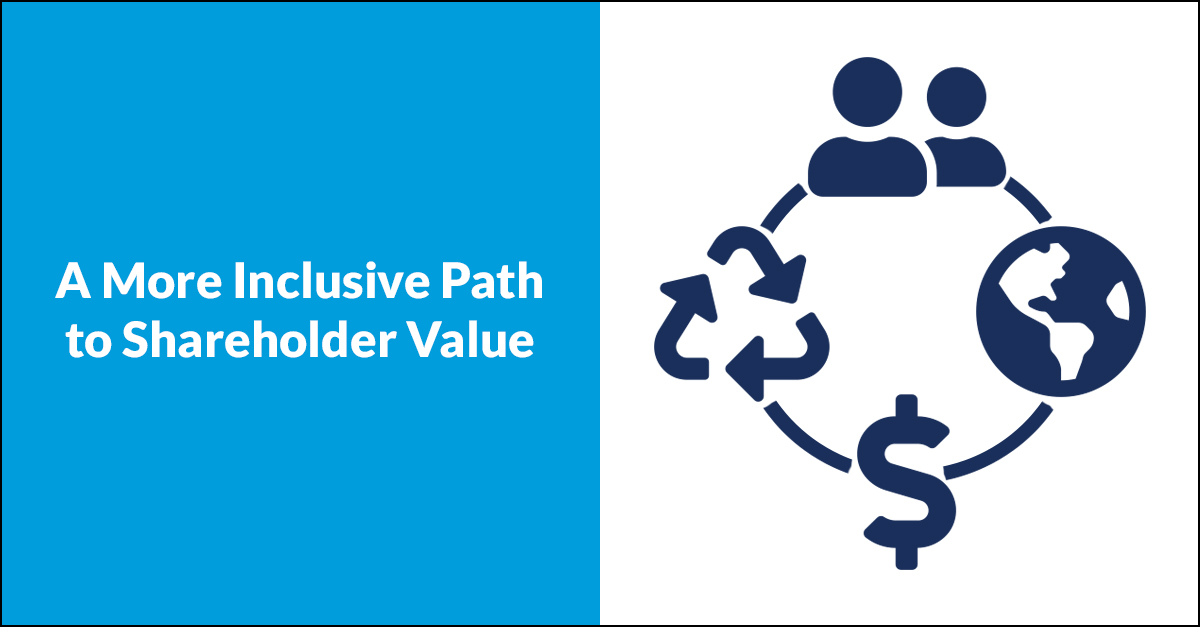
I’ll be the first to admit that I’m no economic scholar, but I’ve always struggled with Milton Friedman’s 1970 declaration in an essay for the New York Times arguing that the sole social responsibility of business is to increase profits for shareholders. It is, on its face, such an exclusionary premise. Perhaps I’m naïve,
but I’d like to think that a lot of, if not most, businesses were started for reasons that go beyond simply making boatloads of money.
When we started Far Reach more than 12 years ago, my primary motivation was to create a great place to work. Having come from a corporate environment that my partners and I found less than inspiring, my focus then—as now—was squarely on offering
an alternative culture that would allow people to do great work and find fulfillment in the process. It seemed like common sense that
a happy, fulfilled team would produce great results for our clients and, beyond that, find ways to give back to our community.
Like me back in 2007, there were thought leaders in the early 1970s who viewed things very differently than Friedman did. Milton Moskowitz, who along with colleague Robert Levering went on to compile the first list of “100 Best Companies to Work
for in America,” is one example. In a 1973 New York Times article, Moskowitz wrote, “The theory, which I subscribe to, is that companies blessed with socially sensitive managements will, over the long-term, outperform their competitors.
They will do so because they are more attuned to the needs of society.”
Moskowitz’s theory has always resonated with me because, unlike Friedman, I think of profits as being the welcome outcome of a business’s commitment to do right by its employees, customers, and community—rather than its sole purpose.
An impressive example of a purpose-driven business strategy leading to impressive financial performance is DTE Energy in Detroit.
Suffering, as many did, at the hands of the Great Recession in 2008, DTE needed a big turnaround to avoid bankruptcy. Under those dire circumstances, DTE CEO Gerry Anderson focused his energy on changing the company’s culture. In a 2018
HBR IdeaCast podcast, Anderson says, “I began to think about continuous improvement in a more sustainable continuous model of allowing our
organization to become excellent. And one of the cornerstone principles of continuous improvement is respect for people. You cannot ask your people to go to bat for the corporation unless they sense that you’re going to bat for them. It’s
just an unfair exchange. You can’t ask for their heart and their energy, but not provide something equally meaningful in return.”
DTE’s successful culture change ended up having an economic impact and resulted in its shareholder return increasing by 275% compared to an 83% increase for its average peer.
So, it was welcome news to me when the Business Roundtable, exclusive representative of the CEOs of more than 200 of America’s leading companies, recently revised their definition
of the role of business in society.
No longer does the lobbying voice of many of the largest and most powerful companies in the US endorse the idea that businesses should exist, first and foremost, to serve shareholders. Instead, they argue now, the economic future of this country depends on the inclusive idea that serving ALL stakeholders—employees, suppliers, communities, and the environment, as well as shareholders—is
the best path to economic prosperity for all.
I’m not sure why it’s taken so long for this idea—that to best serve shareholders, it pays to treat employees well, be a socially responsible community member, and respect the planet—to hit the mainstream, but I’m happy the
tide appears to be turning more and more in this direction. And I’m hopeful that ALL of us will reap the benefits.